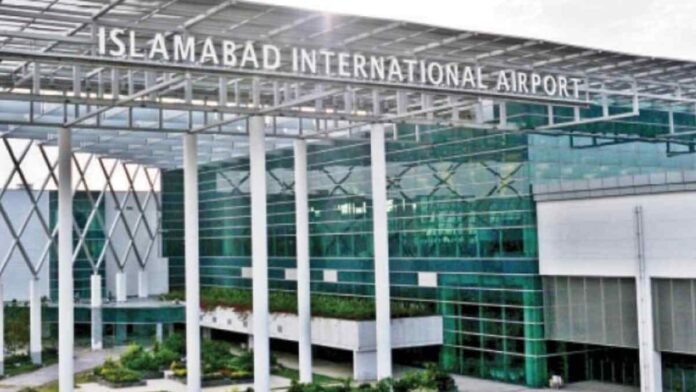Pakistan has approved a deal to transfer the management of Islamabad International Airport to the United Arab Emirates (UAE), a move signaling Islamabad’s growing reliance on foreign partners to revamp struggling state-run enterprises.
The decision came on Thursday at a Cabinet Committee on Inter-Governmental Commercial Transactions (CCoIGCT) meeting, chaired by Deputy Prime Minister Ishaq Dar. The agreement will be executed under a government-to-government (G2G) framework, ensuring direct state-level negotiations rather than an open bidding process.
Negotiation Team to Define Terms
A special negotiation committee, led by the prime minister’s adviser on privatisation, has been tasked with finalizing operational and financial terms. The panel will work closely with the defence, finance, law, and privatisation ministries to ensure regulatory compliance and smooth transition.
This step is part of Pakistan’s wider strategy to outsource management of major airports and other state assets to global operators, aiming to improve service quality and cut operational losses.
Airport’s Struggles Spark Outsourcing Drive
Islamabad International Airport, inaugurated in 2018 with ambitions of becoming a regional aviation hub, has faced recurring financial losses and operational inefficiencies. Officials argue that bringing in an experienced UAE operator will introduce international service standards, modernize operations, and build investor confidence in Pakistan’s infrastructure sector.
The UAE already has significant investments in Pakistan’s ports, logistics, and energy sectors, and this deal could further strengthen bilateral economic ties.
Broader Economic Reform Push
The airport handover aligns with Islamabad’s wider privatization and investment agenda, part of a broader economic reform program aimed at stabilizing public finances. Outsourcing state-run enterprises—once seen as politically sensitive—is now being accelerated as the government seeks foreign capital to offset budget deficits and modernize infrastructure.
Senior government officials, including Petroleum Minister Musadik Malik, SAPM Tariq Bajwa, and secretaries from key ministries, attended Thursday’s meeting, signaling high-level support for the decision.
If successful, Islamabad Airport could become a test case for similar arrangements at other major airports in Karachi and Lahore, further opening Pakistan’s aviation sector to foreign expertise.

